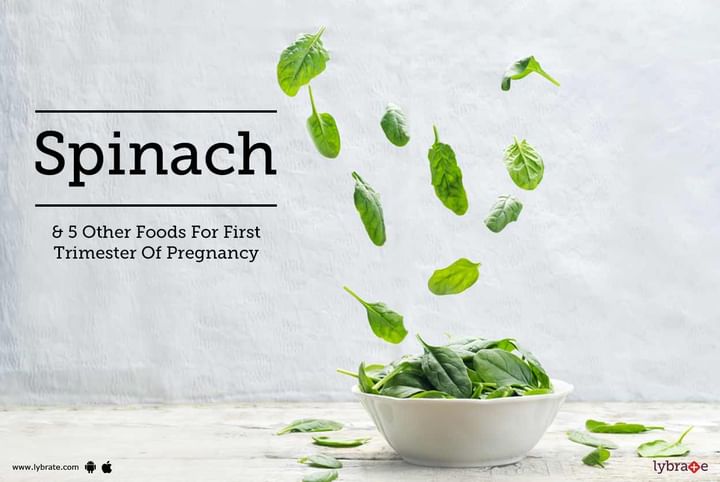Spinach & 5 Other Foods For First Trimester Of Pregnancy
The first trimester of pregnancy (i. E. The first three months) is a very crucial time as this the time when your baby grows at a faster rate than at any other stage. Eating right is what you should be doing during such a time in your life as your body can make use of the energy and nutrients to build the body of your baby as well as to keep you strong. During the first trimester of your pregnancy, you should be including these 6 foods in your diet to provide you and your child with all the vital nutrients.
1. Spinach: High in folic acid, also known as folate (a form of vitamin b), consumption of spinach during these first few months (as well as before pregnancy) is extremely vital. It can help in preventing the occurrence of neural tube defects or birth defects pertaining to your baby's brain and spine.
2. Citrus fruits: Your first-trimester diet should also consist of an adequate amount of citrus fruits. High in vitamin c, you should have at least 1 citrus fruit every day. If you prefer to take these fruits in juice form, you should restrict it to only 1 cup a day. This is because juices are high in calories and low in fibre, and, therefore, do not deliver on the fibre component.
3. Nuts: During this period your protein requirements also increase and it is advised that you have about 60 gm or more of protein every day. Nuts such as walnuts, almonds, cashews and pistachios are known to have healthy amounts of fibre, fats and protein. A study conducted by the Harvard medical school suggests that eating nuts can help in preventing allergies in children.
4. Eggs: In addition to helping you meet your protein requirements, eggs can also be an excellent source of vitamin d and calcium. The last two elements are extremely vital for your baby as they help in developing its bones.
5. Beans: Providing you with necessary protein and fibre as well as helping you to deal with constipation, beans are must-haves during this period. Eating this fibre-rich food will ensure your bowel is functioning properly, thereby reducing your likelihood of developing constipation and even haemorrhoids (swollen veins of the anal and rectal region).
6. Yoghurt: A good source of calcium, having a cup of yoghurt every day will provide your baby with the calcium that it needs to grow and that you need to keep your bones strong. More importantly, by doing so, it'll prevent your baby from drawing calcium from your bones, leading to a deterioration of your bone health.
In case you have a concern or query you can always consult an expert & get answers to your questions!
In case you have a concern or query regarding gynaecological issues, you can consult a gynaecologist online & get the answers to your questions through online doctor consultation via video call.



+1.svg)
